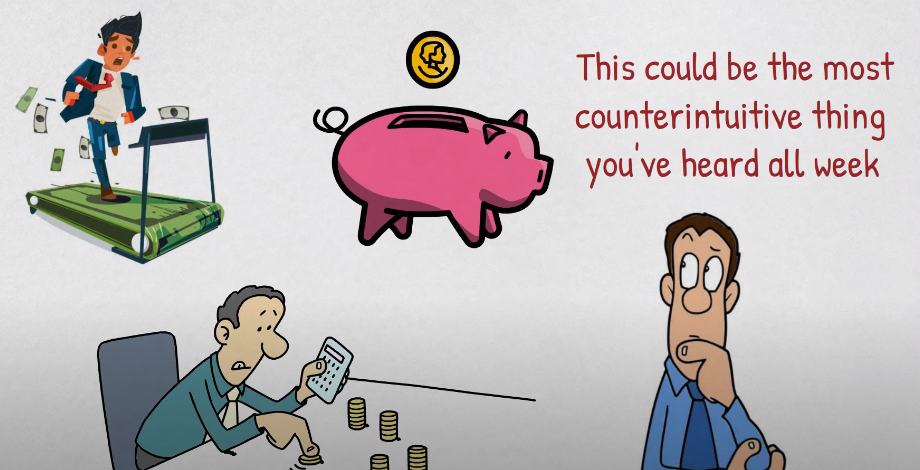Introduction
Before you retire, you need to know that there are crucial things that can significantly impact your life after you stop working and retire.
Imagine yourself basking in the sun, sipping a coconut drink on a beach, or exploring different countries without worrying about the day of the week.
While this retirement dream sounds enticing, turning it into reality requires careful financial planning.
Money becomes even more critical in retirement, determining your quality of life.
To make sure your financial ship is seaworthy for this exciting journey, you need to lay a solid foundation today. Think of it as preparing for a long and enjoyable cruise.
So before you trade your business suit for a bathing suit, make sure you grasp these essential principles to secure a comfortable and fulfilling retirement.
Assessing your retirement Readiness

Determining your readiness for retirement involves a thorough and honest assessment of your financial situation.
The first step is understanding your potential expenses during retirement, considering both big plans like vacations and everyday costs like utilities, groceries, and occasional treats for the grandkids.
Once you have a clear picture of your anticipated expenses, the next task is evaluating your potential sources of income in retirement.
This includes pensions, Social Security, and dividends from investments. The goal is to ensure that your income outweighs your expenses, creating a favorable balance.
If you feel behind in your preparations, remember that it’s never too late. The path to retirement is a marathon, not a sprint.
While there may be moments of lag, with the right moves and strategies, you can still catch up. The key is to act decisively and promptly.
It’s like creating a personalized financial roadmap to help you navigate life’s journey with confidence and peace of mind.
Also, planning your retirement involves preparing your thoughts and feelings for this new phase in life.
It’s not just about the money; it’s also about knowing how you’ll spend your time and find fulfillment.
Mentally preparing for retirement means embracing change positively, staying open to new experiences, and understanding that your sense of purpose may shift.
Embrace the freedom to choose how you spend your days and consider the things that make you happy and fulfilled.
This mindset shift can help you transition smoothly into a retirement that is not just financially secure but also emotionally satisfying.
Investments and Risks

As you approach retirement, a crucial shift in your approach to investments becomes necessary.
When you were young, you may have been focused on aggressively pursuing growth, but now it’s time to adopt a more protective stance.
This doesn’t mean becoming overly conservative; rather, it involves ensuring the preservation of the wealth you’ve built up over the years.
Recognize that retirement could span several decades, so your financial strategy needs to support you over the long term.
While being aware of risks is wise, it’s equally important not to hinder the potential growth of your assets.
Striking a balance is key—finding a sweet spot where you’re comfortable with your risk level, neither losing sleep over market fluctuations nor watching your money’s purchasing power erode over time.
Don’t compare with others.
In retirement, it’s important not to squander your time comparing yourself to others.
Life unfolds differently for each person, and sometimes you’ll be ahead, while at other times you might feel behind.
Resist the urge to measure your retirement against that of your neighbors or friends who may have acquired luxurious possessions or embarked on frequent extravagant vacations.
If you have a moderate income, focus on what is comfortable and sustainable for you.
Avoid the trap of trying to keep up with others who may be in a different financial situation.
Remember that the journey of retirement is long, and the only real competition is with yourself.
Instead of comparing, concentrate on living within your means and crafting a retirement that aligns with your values and financial capacity.
By staying true to your path, you can find contentment and fulfillment without being swayed by external comparisons.
Avoiding consumer debt
Consumer debt, especially credit card debt, can lead to a financial trap that’s deceptively easy to fall into but challenging to escape.
Shiny plastic cards might seem harmless, but the high interest rates attached to them can trap you in a seemingly never-ending cycle of payments.
Missing a few payments can have repercussions that echo in your credit score for years.
Your credit score isn’t just a number; it reflects your financial behavior and credibility.
A tarnished credit score can hinder significant milestones like owning a home, as lenders may be deterred or impose unfavorable loan terms with high interest payments.
The impact of consumer debt extends beyond interest rates; a strong credit report can open doors to various opportunities and benefits, from lower insurance premiums to better rental terms and even certain job prospects.
Over a lifetime, maintaining an impeccable credit score can result in significant savings, eliminating the need to overpay due to unfavorable rates.
While the ideal scenario is to avoid consumer debt entirely, life isn’t always that linear. Financial missteps, emergencies, or lack of knowledge may have already led to such debts.
If that’s your current situation, it’s crucial to refocus and prioritize clearing those high debts before retirement.
Explore Hobbies and Passions
Exploring hobbies and passions is a crucial aspect of a fulfilling retirement. Engaging in activities that bring joy and purpose can greatly enhance your overall well-being during this stage of life.
Whether it’s pursuing long-time interests or discovering new hobbies, dedicating time to activities you love can contribute to a meaningful and satisfying retirement experience.
Purposeful Activities

In retirement, incorporating purposeful activities into your daily life is essential.
These activities go beyond mere pastimes and contribute to a sense of fulfillment and accomplishment.
Whether it’s volunteering, mentoring, or pursuing educational opportunities, finding purpose in your daily routine adds depth and meaning to your retirement years.
Consider aligning your skills and interests with activities that make a positive impact on others and the community.
Finding the Right Home in the Right Location
Choosing the right home in the right location is a pivotal decision for a successful retirement.
Your living environment significantly influences your overall well-being. Prioritize features that align with your lifestyle, such as accessibility, maintenance requirements, and size.
Whether it’s downsizing or choosing a property with easier accessibility, selecting a home that meets your evolving needs enhances the quality of your retirement.
Additionally, consider the proximity of amenities and cultural activities in your chosen location.
Healthcare Matters

As we age, healthcare becomes a paramount aspect of our lives. Planning for healthcare in retirement involves understanding potential expenses, insurance coverage, and long-term care needs.
Being proactive about health and well-informed about healthcare infrastructure is crucial. Research the accessibility and efficiency of healthcare services in your chosen retirement location.
Understand health insurance coverage, Medicare, and alternative options. Prioritize your health to ensure a smooth and secure retirement experience.




